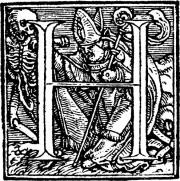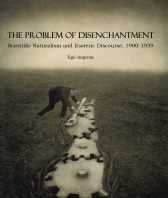 It’s been a busy spring so far, and unfortunately not much time for keeping this blog running. In an attempt to get started again I will give a brief report on Professor Peter Burke’s visit to Amsterdam last week, and particularly one lecture (out of two) he gave on that occasion.
It’s been a busy spring so far, and unfortunately not much time for keeping this blog running. In an attempt to get started again I will give a brief report on Professor Peter Burke’s visit to Amsterdam last week, and particularly one lecture (out of two) he gave on that occasion.
Peter Burke made his career as a renaissance historian in the 1970s, with works on the Italian renaissance and early modern popular culture. As a member of the fiercely interdisciplinary School of European Studies at the University of Sussex in the 1970s he gradually went in a more theoretical direction, focusing in particular on the integration of social theory in the history of culture. He published monograph length works on this in the 1990s, but the break-through so to speak was the publication of A Social History of Knowledge in 2000.
I discovered this book when I started my PhD research about three years ago, and was very inspired by its perceptive but synthesizing use of classical social theorists. It appeared that besides the predictable and omnipresent references to Kuhn, Foucault, Bourdieu and others that I had grown used to when looking for sociologically oriented analyses of “knowledge cultures” and actors moving in and between them, there was already a wealth of perspectives to be found in the classics, ripe for the development of a “social history of knowledge”. The book gave me a new perspective on the relevance of Karl Marx, Karl Mannheim, Max Weber, Thorstein Veblen, and Robert Merton, as well as later contributors to the sociology of knowledge, such as Peter Berger and Thomas Luckmann. As someone who was just trying to acquire a position in a field in which I was partly autodidact, Burke’s book provided motivation to continue exploring the connections of social theory and history.
With these biographical reflections it should be no surprise that I was very happy to see that the Huizinga Instituut – the Dutch nation-wide graduate school for cultural history, in which I am involved – had invited Burke to give a Master Class for PhD candidates this spring. Besides a lecture by Burke, the participating PhD candidates were given the opportunity to give a paper to which he (having read it beforehand) would respond. For me this was a good opportunity to test some ideas (about Max Weber’s notion of Entzauberung or ‘disenchantment’, and its relation to the histories of science and religion in the early 20th century, to be precise).
But I was also curious about his lecture. The actual historical focus of A Social History of Knowledge had been from Gutenberg to Diderot, and thus stopped before the period which I have been most interested in. Reading his essay published in Modern Intellectual History in 2007, “Social History of Knowledge Revised” I was also left somewhat wanting. The reflections on the usual suspects of “processes” of cultural transformation since 1750, including specialisation, industrialisation, commercialisation, democratisation, nationalisation, globalisation – and secularisation, did not render me entirely convinced. It seemed that there was much more to do in order to operationalise all these (and more) terms, and give them more specified analytical meaning.

Peter Burke, lecturing in 2009
The lecture in Amsterdam last Tuesday was promising in that regard, as it was based on Burke’s reflections on his follow-up to Social History of Knowledge – “From the Encyclopédie to Wikipedia”. The book is due to come out at the end of this year. A similar lecture, based on a chapter to the book was given at Birkbeck College, and was published on the Theory, Culture, and Society blog in Dember 2010.
In Amsterdam, Burke gave a rather programmatic lecture entitled “Discovering the History of Knowledge: A Commentary on the Rise of a New ‘Field'”. In it he reflected on a large number of different aspects that a history of knowledge has to focus on. Starting off with a discussion of whether we have entered a “knowledge society” or an “information society”, the distinction between information and knowledge was introduced, however briefly. The main reference here was to anthropology, and Claude Lévi-Strauss’ distinction of the “raw” from the “cooked” (with information being “raw” and knowledge rather “cooked”, processed and systematised), but it seems that much more is needed than this simple structural definition. He continued by stressing the difference between the social history of knowledge and disciplines such as the history of ideas: while the latter has been happy (at least in the school from Arthur Lovejoy) to consider the transmigration of disembodied “ideas” through history, the history of knowledge is more interested in the cultural and social, in intellectual practices, and the historicity of such practices. It takes the social situatedness of knowledge seriously, a notion which, although very commonly legitimated by references to later constructivist and poststructuralist icons, Burke traces more appropriately to Karl Mannheim.
Moving to the history of science, one instance of taking social factors seriously is the “Matthew effect” noted by Robert Merton (i.e., Matt.25:29: “…to all those who have, more will be given, and they will have an abundance …” ). In a classic paper from 1968, Merton noted, among other things, that scientific prestige tended to accumulate on those who already possessed it in some degree, such that, for example, when two scientists a and b have done the same kind of work, but a has a reputation and b does not (e.g., is working as a lab-technician, or a graduate student), it is scientist a who tends to get the Nobel Prize if the work leads to amazing discoveries. Into this, Burke suggested, geografic (working in centers tend to be rewarded more than working in the margins) and gender factors may also be present (such as the famous story of the discovery of the double helix, and Rosalind Franklin’s neglected role – or, ironically, even the relation between Merton himself and his wife, the sociologist Harriet Zuckerman, who also researched the phenomenon of multiple independent discoveries, while it is Merton’s name that has become attached to the “Matthew effect”!).
Among the many other well-known social effects charted out were the notion of dominated vs. dominating knowledges (e.g. Foucault, and a host of post-colonial thinkers), habitus (Bourdieu), and tacit knowledge (Polanyi). But what I found more interesting was the reflections on the history of ignorance. I even learned that there has developed something of a field around this study in recent years, centered on the wonderful neologism agnotology (coined by Robert Proctor). Conferences and workshops have been dedicated to agnotology already, and it even has a decent Wikipedia article. Agnotology, or the study of culturally imposed ignorance, naturally follows suit with the history of knowledge. It will focus on different forms of ignorance. Most important perhaps are the various forms of loss of knowledge, whether due to political suppression, material loss (e.g. destruction of places and objects of learning), or due to paradigm changes (what has sometimes been called “Kuhn loss”). In addition comes the disappearance of tacit knowledge, which is hard to trace for the historians. The knowledge that is never written down, but lives through the “way we do things”, through minute details of social practices, priorities, or methodological nuances too taken for granted to get noted down.
When it comes to more contemporary times, a highly relevant topic for agnotology (indeed one of its central focal points, it seems) is the use of deliberate misinformation, fabrication of data, the cultivation of misology targeted at scientific research, and the production (usually of think-tanks) of strongly politically (or financially) charged studies, deliberately ordered to put knowledge that does not serve one’s own interests well in a bad reputation. Although Burke did not mention this in his lecture, controversies (or rather fabricated pseudo-controversies) over topics such as climate change, vaccines, evolution-creation, etc. have made this a highly relevant area of study in recent years. Examples of the genre include Chris Mooney’s The Republican War on Science (2005), Michael Specter’s more popular Denialism (2010), and Naomi Oreskes’ meticulously well-documented Merchants of Doubt (2010).

The Three Wise Monkeys carved on a stable housing sacred horses at Tōshōgū shrine, Nikkō, Japan. Photo by David Monniaux.
For the history of science, but possibly also for other fields, another agnotological research interest is the phenomenon of “displacement”, and especially of “excluded ancestors”. Sometimes a historical figure has a strong claim to the ancestry of a given discipline, but tends to get forgotten, excluded and suppressed because historical twist and turns have given him or her a bad reputation – typically because of “dangerous ideas” or unfortunate political affiliations. Burke mentioned the case of criminology and Cesare Lombroso – who was a bit too fond of the sizes and shapes of sculls and brains for later generations – and the position of Carl Schmitt for political science.
The concept of excluded or displaced ancestors also seems to be of relevance for some of my own research. I have argued that the psychologist William McDougall was the real founder of professional parapsychology in the 1930s. While his enthusiasm for eugenics may actually have been part of the reason why he managed to “sell” parapsychology to university financiers, it is hardly a heritage later defenders of the already controversial discipline have wanted to emphasise.
All in all this lecture painted a panoramic view of what one can do with the history of knowledge. As will inevitably be the case when one synthesizes a great number of theoretical notions and observations from a large number of specialties, each of these topics in turn require entire lecture series on their own. I am also curious to see how far Burke will go in the coming book to systematize and build more encompassing models that relate the many insights together. Even without such systematization, there is more than enough here to make a strong case for the value and utility of a social history of knowledge. If it can be further connected with areas such as science and technology studies, it should prove well equipped to offer much needed analyses of our own time, its recent history and immediate future.
This work by Egil Asprem was first published on Heterodoxology. It is licensed under a Creative Commons Attribution-ShareAlike 3.0 Unported License.







[…] A review of Peter Burke’s A Social History of Knowledge , which provides new perspectives on the relevance of Karl Marx, Karl Mannheim, Max Weber, Thorstein Veblen, and Robert Merton, as well as later contributors to the sociology of knowledge, such as Peter Berger and Thomas Luckmann. […]
[…] I had two opportunities to discuss these ideas in workshop settings, first with a commentary from the social historian of knowledge Peter Burke, and later in a research workshop for cultural history PhDs in the Netherlands called the Barchem […]